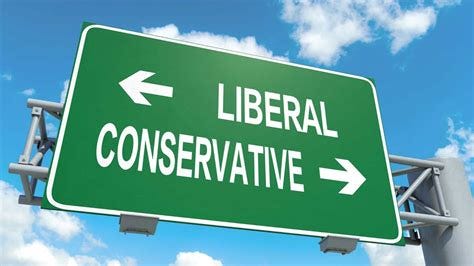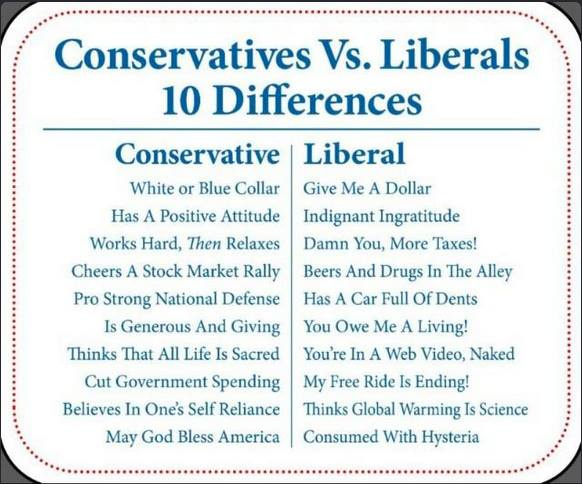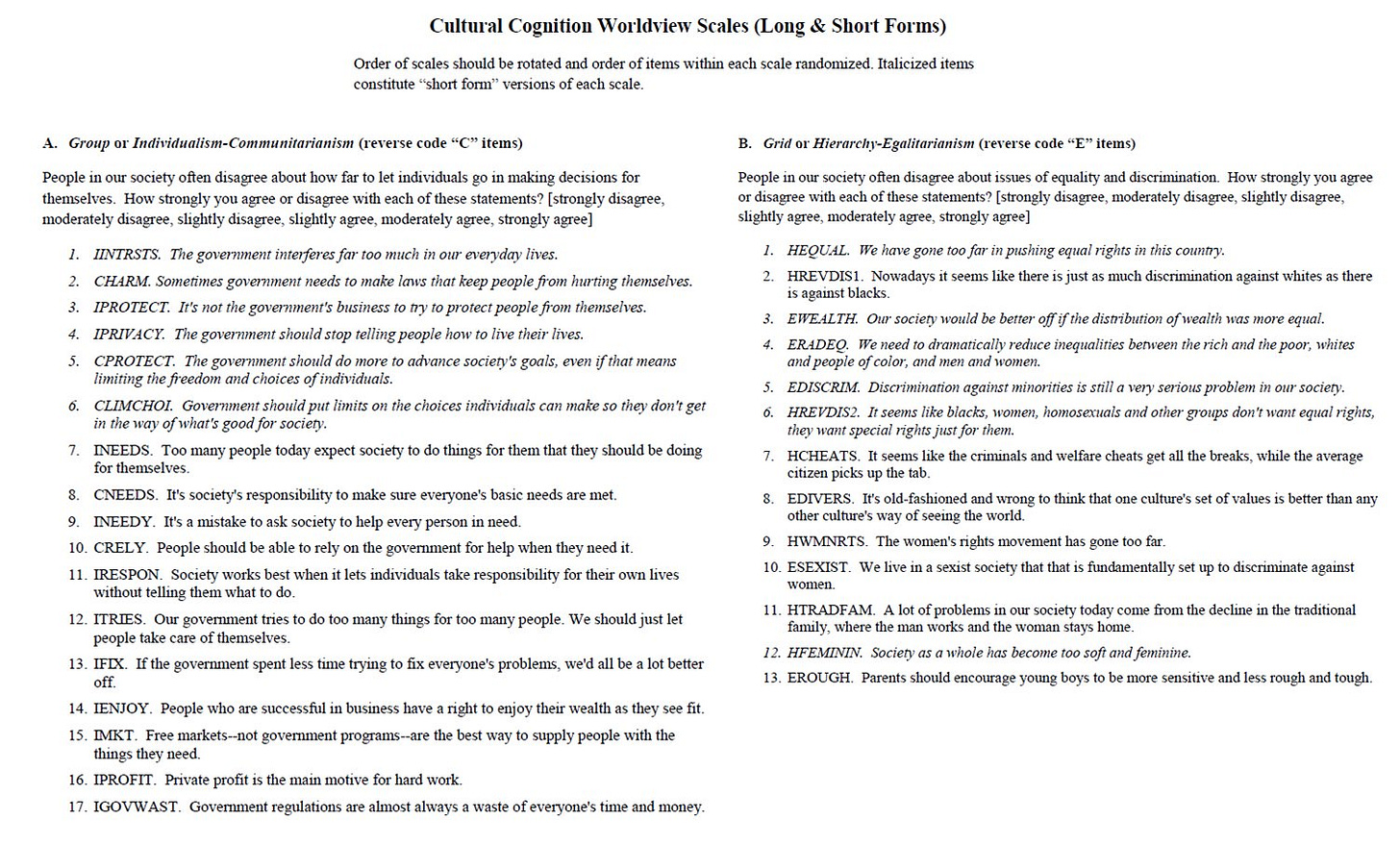What is a conservative? I have been wrestling with this question for awhile, not least since my fren
added me to a graph of dissident Right writers on Substack.There I am, more or less right in the middle of some very brilliant writers I admire, and most of those writers very much more well known than I am. It was a great honor, and I remain a bit awed by it and grateful.
But then I had to ask myself, what are my dissident right bonafides? It is not enough to be against the left, if there is going to be anything like a counter-revolution, or retaking of America or restoration. There are some on the left who are very much against the left, the left having so ingratiated itself with the GAE Imperium, so very much embracing rank authoritarianism. Being against the left does not make one conservative.
Most of my life I did not think of myself as a conservative. Nor did I think of myself as a liberal, so much of what was called liberal being about faith in the government, social engineering and libertine sex and drugs (I am no prude, but too much sex and drugs is the end of feeling.) As long as I remember I called myself an anarchist, though not loudly so as not to associate myself with the leftists masquerading as anarchists who are really about destruction for the sake of destruction. I am more like a philosophical, conservative anarchist, though I’m not even entirely clear about what that means.
Conservative when I was growing up was Republican, which seemed to mean money, guns, big trucks and war. The most moral were the most rich, or rather, it seemed the more money you made the more moral you were believed to be. My conservative notions, even very young, were about conserving wilderness, species, the health of the land and waters. That was called liberal then, and still is to some degree, though now I realize more land has been restored and taken care of by the sales of guns and bullets, and conservative groups like Ducks Unlimited or Pheasants Forever, than government. Conservative was church, but most of the adults I met in church were lame hypocrites. Conservative never told me a story that spoke truly to my soul, as inspiring as some of the Bible can be. I still don’t know what conservative is, not really, as modern definitions are many and none very clear.
I do know a lot of “conservative” writers speak clearly to me, like the men on the list above, while a lot of liberal writers have set up the likes of me as an enemy of all that is good, who are advocating for us to be destroyed by the power of the State.
Meanwhile I don’t even believe there is any inherent right for the State to exist. If the State has a right to exist at all it is for the people to set up their protection from foreign hostiles, and to maintain law and order. I’m not even sure anymore the State is necessary to maintain law and order. In fact it is pretty clear, the State has opened up the border to hostile invaders, the law has been weaponized against anyone who questions the government and Democrats.
As far as I can tell, everything the government touches it breaks.
I’ve been mulling over a series on “what is a conservative?” To that end, I found this on one of my favorite Substacks of late, the New Right Poast.
Yale researcher Dan Kahan studied the personality and cultural differences of Americans and found a fascinating distinct cluster: white hierarchical individualistic men Making up around 1/6th of the population, this cluster has markedly different views about risk, guns, environment, and more. For example, here's white hierarchical men on climate change vs everyone else:
Hierarchical individualist men don't just not overlap with everyone else on the risks of climate change, they're on a different planet. But hierarchical individualists aren't universally fearless people. They just have different risk assessments. For example, white hierarchical individualists find the idea of gun regulations to be incredibly high risk, but almost no one else does. Here's the full chart of risk perceptions:
Kahan's fascinating research further solidifies that differences in views of reality are fundamentally motivated by personality and values differences. Curious whether you're a hierarchical individualist or an egalitarian communist? Here's the test:
Reading through these questions, I thought, well, I’m definitely not an egalitarian communist. We are all dependent on government. But there is no freedom if we can’t talk freely about the government.
The government interferes too much in our every daily lives.
Government spending is now something like 25% of the “economy”. Add in all the NGO’s and contractors, it is probably closer to 50%. I used to tell my remodeling clients, we can apply for a permit, but the job will cost 40-50% more and take twice as long. As an employer it costs 2.5-3xs as much to employ someone, relative to what you are paying them, because government. Government would make the million dollar music venue I want to build, 2 million. Feeling broke, economically? You are floating all those government/ NGO/Edu jobs and their black hole spending for little to no return.
Sometimes government needs to make laws to keep people from hurting themselves.
Actually, government schools make people dumber, so that might seem like a make-work project for government officials, keeping dumb people from hurting themselves. Also, the government just got 200+ million Americans to potentially hurt themselves taking a fake vaccine that weakens one’s immune system, to supposedly protect us from a bio-weapon the government released. So this is just a dumb question for dumb people.
It is not the government’s business to protect people from themselves.
Government is not a business, though it very much has treated turning American Citizens into mindless consumers like a business, who then support the endless growth of government to protect them from their bad choices. Except no government anywhere ever has protected people from making bad choices.
The government should stop telling people how to live their lives.
The government is now a technocratic deep state that can’t do anything but get up in your business and tell you how to live, what you should think, what you can say, who you should hate. These technocrats think they all know better than all of us, we would all die by self-harm if they don’t micromanage everything we do. Except the bigger government gets the more chronically ill people get, the younger we die on average. I’d like to say government should stop telling us how to live, but that is what government will evolve to do, that is the very “nature” of government, so the only real solution is get rid of the vast majority of government.
The government should do more to advance society’s goals, even if that means limiting the freedom and choices of people.
Only if the goal of the society is to limit freedom and choice. That is the goal of the left and government today, to limit the freedom and choice of everybody but especially their political enemies. The problem is, once we allow government to limit freedom and choice, as we saw with Covid, that is most of what the government will eventually do, seek to limit ever more freedom. Government eventually will not care, as we are seeing, what society thinks, about fossil fuels, immigration, censorship etc, government is going to do what is good for the growth and power of government.
Government should put limits on the choices individuals can make so they don’t get in the way of what is good for society.
This is a more complicated question. It goes to law and order, one of the few legitimate things “government” is good for, theoretically. Though the Tonic Seven made a good point recently in a Tonic Discussions podcast , the more you hand off law and order to specialists, the more removed you become from the act of justice, the less that becomes justice - as we saw with the war on drugs and the black community, and now the pendulum swinging to not prosecuting crime, letting criminals do as they will basically, while we lock down on people’s speech.
One argument against Libertarians has been, how do you defend against pollution without government? But we have never had more regulations, we have never had more government, and yet America has never been more systemically toxic with more pollutants in the waters, air, soil and our bodies. One might begin to wonder to what degree government facilitates systemic toxicity?
There are always going to be individuals who are going to “get in the way of what is good for society,” though it is good to remember, as in the recent debates about covid and censorship, what happens when a majority thinks authoritarianism, what is fundamentally bad for society, is good for society?
Society needs to have some system for doling out justice. It is entirely debatable whether or not there needs to be a permanent class of people called government to do that. Too predictably, government comes to be concerned with protecting government at the expense of society, which is the very nature of communism.
Too many people today expect society to do things for them that they should be doing themselves.
We have all left off a lot of responsibility for society to government. Government is not society. Government eventually will destroy society, once it has replaced all the foundations that make society (individual achievement, family and community). This government now acts like it is “democracy” and we are all just consumers of that, eat the peas we give you and you will like it.
It’s society’s responsibility to make sure everyone’s needs are met.
It should be society’s goal to make sure the needs are met of those who cannot take care of themselves. As for everybody else, get it together. One absolute truism about society’s responsibility to meet people’s needs is, once people figure out they can vote for people who will give them free stuff, government starts making sure “their needs are met.” Once government starts meeting the needs of people who are lazy, government starts making a lot more lazy people. The more lazy people there are the more government grows and the more likely the collapse of society is.
That might be a fundamental conservative ideal, do what must be done to meet your own needs as much as possible. There are something like 40mil Americans now on disability. How many of those really need to be? A lot of DEI is about giving gov and NGO jobs to people who can’t function in the private economy actually making or building things. Anecdotally I’ve known a few people who have been on the dole most of their lives and are functionally useless, not out of any inherent in-ability, but having been trained to have no initiative or self-determination. Government ends up making more of such people, because such people will reflexively support the ongoing growth of government.
It’s a mistake to ask society to take care of every person in need.
How about you take care of someone in need, without asking society to do it? I don’t mean that literally, necessarily, but only to show how reflexive we have become, leaving it up to government. Before the expansion of government with FDR’s New Deal, and Pres Johnson’s Great Society, it was mostly churches and community organizations like the Masons, Knights of Columbus and Elks Club, who helped people/families when they fell on hard times for whatever reason. When taking care of people in need was a local thing, people more often got it together and started taking care of themselves again, instead of relying on their neighbors forever. When it is government doing it, government ever-expanding creates an ever-expanding class of people perpetually in need.
People should be able to rely on government when they need it.
You probably wouldn’t say people should be able to rely on the mob or the cartel when they are in need. The more people start relying on government when in need, the more powerful the government becomes and the more government expects from all of us in return. The more powerful the government becomes, the more mob and cartel-like it becomes, the greater the existential threat. All those Americans relying so much on government are supporting government going after people who don’t need government so much. It would be vastly preferable and healthy for society and people if we were all less dependent on government, and more on each other locally.
That seems like a good place to leave it for now. I expect this discussion on ‘what is a conservative’ to be ongoing. I would love to hear your thoughts, with any information you might have about “what is a conservative?”













Nice post, William. Dissident and conservative aren't really synonymous terms; indeed, little of the mainstream conservative movement I would consider to be dissidents. A dissident is a person fundamentally opposed to the globohomo world order on religious, metaphysical or other grounds. A conservative, at least in the way the term is commonly used, is someone against an *aspect* of the globohomo world order but not the system in its entirety -- i.e. you'll have conservatives against abortion, or pro-gun, or against trannies or boycotting Bud Light or whatever, but they basically accept the egalitarianism ratchet effect and Whig history powering the system's forward momentum. This is why conservatives usually lose.
When I think of conservatives my mind goes back to this wonderful and prophetic quote by Robert Lewis Dabny (chief of staff to Stonewall Jackson) in 1897:
"It may be inferred again that the present movement for women's rights will certainly prevail from the history of its only opponent: Northern conservatism. This is a party which never conserves anything. Its history has been that it demurs to each aggression of the progressive party, and aims to save its credit by a respectable amount of growling, but always acquiesces at last in the innovation. What was the resisted novelty of yesterday is today one of the accepted principles of conservatism; it is now conservative only in affecting to resist the next innovation, which will tomorrow be forced upon its timidity and will be succeeded by some third revolution; to be denounced and then adopted in its turn. American conservatism is merely the shadow that follows Radicalism as it moves forward towards perdition. It remains behind it, but never retards it, and always advances near its leader. . . . Its impotency is not hard, indeed, to explain. It is worthless because it is the conservatism of expediency only, and not of sturdy principle. It intends to risk nothing serious for the sake of the truth, and has no idea of being guilty of the folly of martyrdom. It always when about to enter a protest very blandly informs the wild beast whose path it essays to stop, that its bark is worse than its bite, and that it only means to save its manners by enacting its decent role of resistance: The only practical purpose which it now serves in American politics is to give enough exercise to Radicalism to keep it in wind, and to prevent its becoming pursy and lazy, from having nothing to whip. No doubt, after a few years, when women's suffrage shall have become an accomplished fact, conservatism will tacitly admit it into its creed, and thenceforward plume itself upon its wise firmness in opposing with similar weapons the extreme of baby suffrage; and when that too shall have been won, it will be heard declaring that the integrity of the American Constitution requires at least the refusal of suffrage to asses. There it will assume, with great dignity, its final position."
Thoughtful essay, Hunter! I agree that everything government touches, it breaks. That's because it's an unnatural, unnecessary, and evil system to begin with. Seeking power over others and then justifying the use of force and deception to achieve such as status is evil.
Truly, I believe that we were created to be free men and women, and to inherently follow Natural Law. Somehow, that got corrupted. And you know what I think about that.
In fact, it is these demon-channeling, secret-society psychopathic tyrants who invent false dichotomies with special categorizing labels like "Conservative" and "Liberal." They're word-spells, cast upon already-weakened folks who gave over their true power — their spirit — to the wayward wizards in the first place. I mean, we've all done it. Now some of us are just reclaiming our spiritual nature and experiencing the scales falling from our eyes.
This is why we continue to see a broadening chasm amongst humanity: Some people are clinging to the false reality, to their spell-cast beliefs, out of fear of the unknown. But until one questions reality/beliefs, embraces uncertainty, and lives unafraid of the posturing tyrants, one will continue to be mesmerized and enslaved by them.